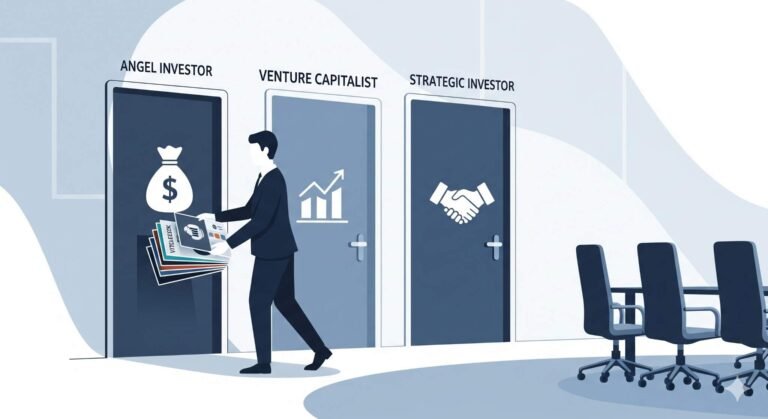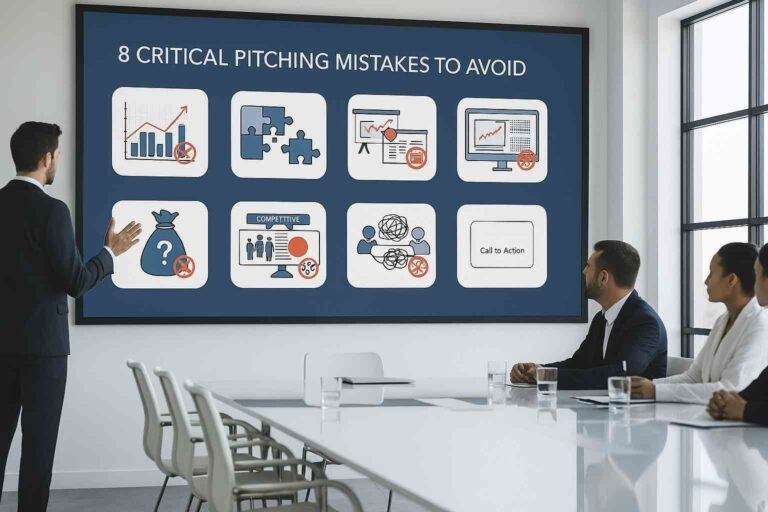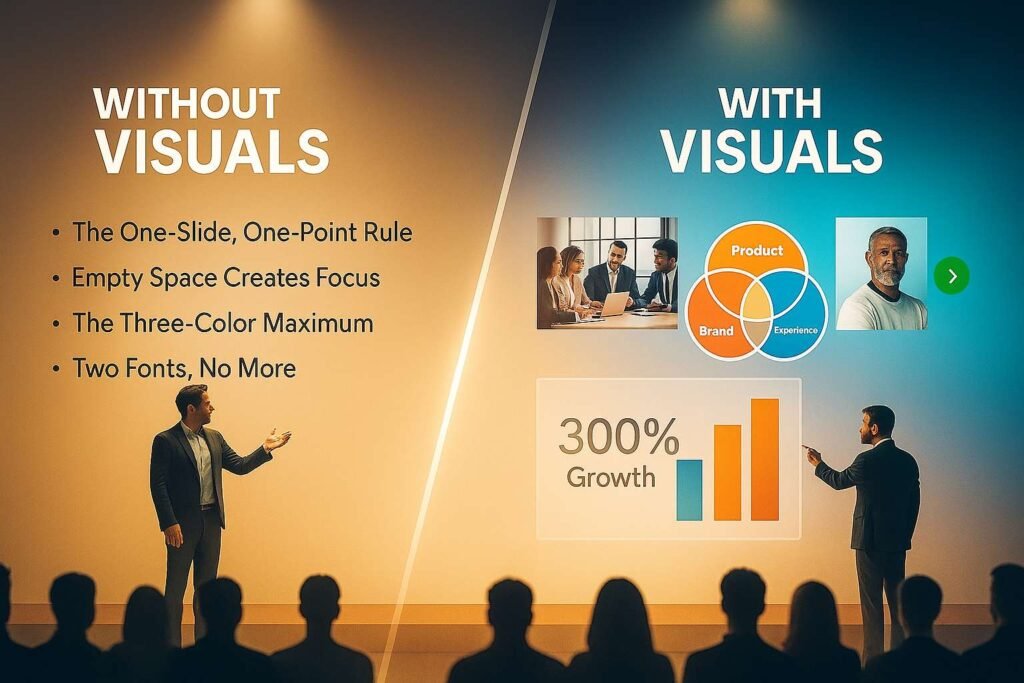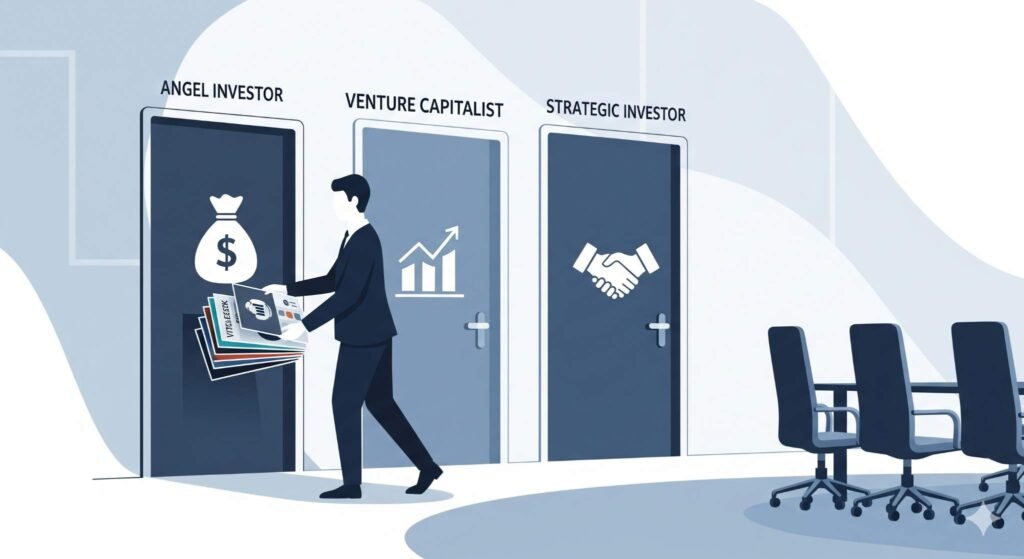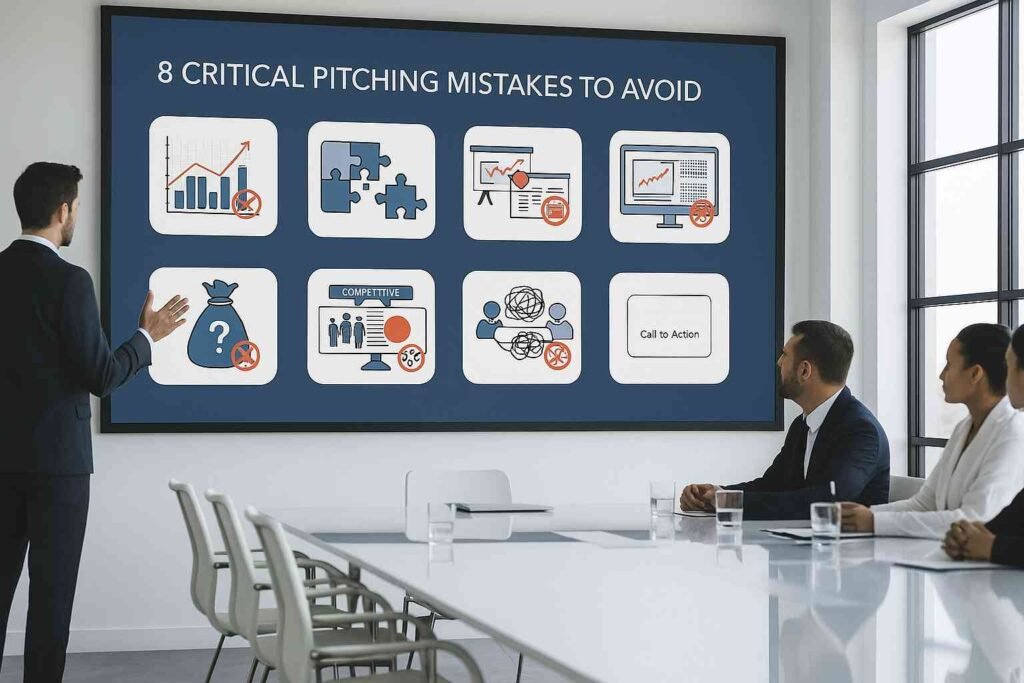Introduction:
Automation has become a driving force behind modern business efficiencies, making it a hot topic in boardrooms and investment circles alike. For businesses in this space, crafting a compelling automation pitch deck is crucial for securing investments, partnerships, and sales. But despite the growing importance of automation, many companies fall into common traps that render their pitch decks ineffective, wasting both time and resources.
A well-constructed pitch deck is more than just a collection of slides; it’s a strategic tool designed to persuade and engage. Yet, how can you be sure that the time and effort you’ve invested into your automation pitch deck will pay off? This is where working with a pitch deck design service agency can make all the difference. These agencies specialize in creating pitch decks that not only look professional but also deliver a powerful message that resonates with the audience.
In this blog, we’ll explore the key indicators that might suggest your automation pitch deck is a waste of time and how an investor deck designer for much more better than automation. We’ll also provide actionable insights to help you reassess and refine your presentation, ensuring it’s both impactful and effective.
Key Indicators Your Automation Pitch Deck Might Be a Waste of Time:
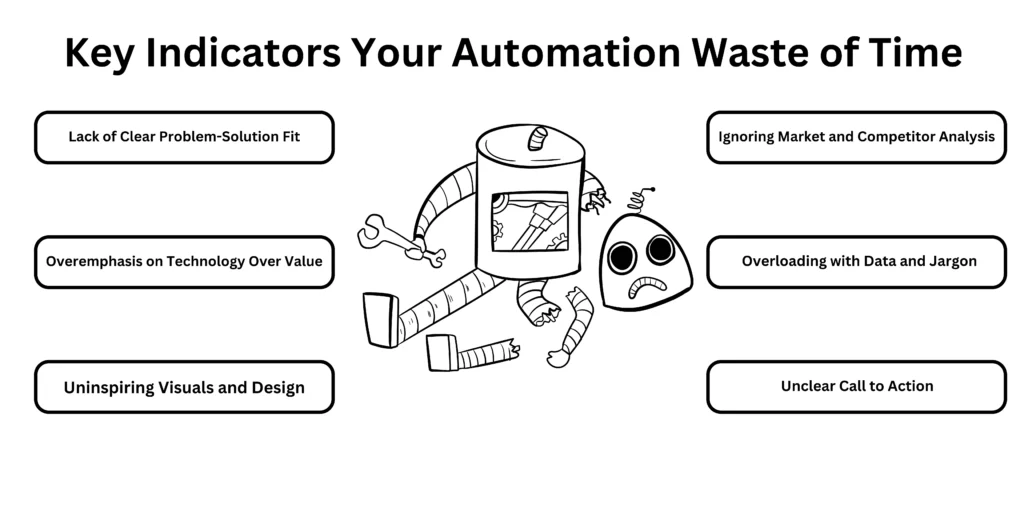
1. Lack of Clear Problem-Solution Fit
The Issue:
A common mistake in automation pitch decks is failing to clearly define the problem that your solution addresses. If your pitch deck does not articulate the problem in a way that resonates with your audience, it risks becoming irrelevant. Investors and partners need to understand the specific pain points your automation technology is designed to solve; otherwise, they may struggle to see the value in your solution.
2. Overemphasis on Technology Over Value
The Issue:
One of the most common pitfalls in automation pitch decks is an overemphasis on the technical aspects of the solution. While it’s natural to be excited about the technology behind your product, focusing too much on the technical details can alienate non-technical stakeholders. Investors and business partners are often more interested in understanding the business value, benefits, and return on investment (ROI) rather than the intricacies of the technology itself.
3. Uninspiring Visuals and Design
The Issue:
No matter how strong your content is, poor visual design can significantly undermine the impact of your pitch deck. Most of the automated tools will use only predefined templates. Uninspiring visuals, inconsistent branding, and cluttered layouts can make your presentation appear unprofessional and difficult to follow. This not only detracts from the clarity of your message but also reduces the overall effectiveness of your pitch.
4. Ignoring Market and Competitor Analysis
The Issue:
A pitch deck that lacks a thorough market and competitor analysis can come across as incomplete and unpersuasive. Investors and partners want to know that you have a deep understanding of the market landscape, including who your competitors are and how you differentiate from them. Without this analysis, your pitch may seem overly optimistic or uninformed, reducing your chances of securing support.
5. Overloading with Data and Jargon
The Issue:
While data is important for substantiating your claims, overloading your pitch deck with too much data, statistics, or industry jargon can overwhelm your audience. This can make your pitch less engaging and harder to digest, particularly for those who may not be as familiar with the technical aspects of your automation solution.
6. Unclear Call to Action
The Issue:
A strong pitch deck should always end with a clear call to action (CTA), yet many automation pitch decks fall short in this area. An unclear or weak CTA can leave potential investors or partners uncertain about the next steps, diminishing the overall effectiveness of your pitch. Without a clear direction, your audience may not know how to proceed, resulting in missed opportunities.
Conclusion
When it comes to AI vs humans pitch decks, human-created investor decks win because creating an effective automation pitch deck requires more than just showcasing your technology it involves a strategic approach that combines clear messaging, strong design, and a compelling narrative. If your pitch deck lacks a clear problem-solution fit, overemphasizes technology at the expense of value, or suffers from poor design, it may be time for a strategic overhaul. Additionally, ignoring market analysis, overloading with data and jargon, and failing to include a clear call to action are all indicators that your pitch deck might not be as effective as it could be.
In the end, the time and effort you invest in your automation pitch deck should be reflected in the outcomes it generates. By critically assessing your pitch deck against the indicators discussed in this blog and making the necessary adjustments, you can transform your presentation into a powerful tool that exactly communicates your value proposition and secures the investments, partnerships, or sales you’re aiming for. Don’t let your automation pitch deck be a waste of time, ensure it’s a worthwhile investment that delivers real results.



